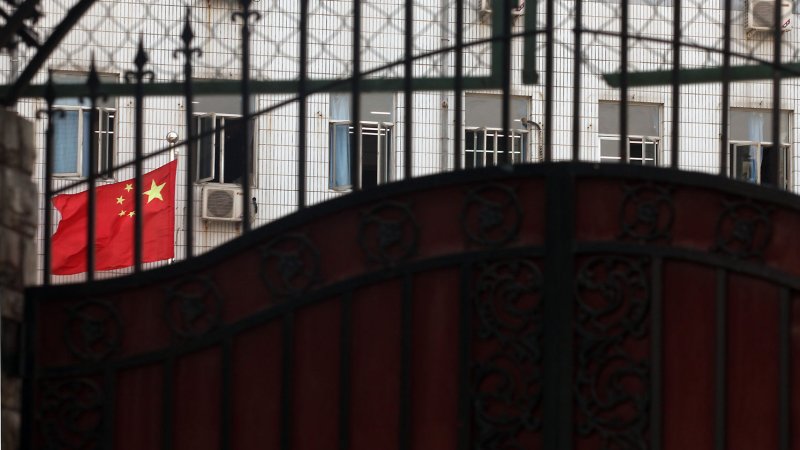BEIJING, March 27 -- The children of millions of migrant families here are forced to return to the countryside for a decent education because of China's decades-old "hukou" household registration system.
Under the hukou system, dating from 1958, rural migrants are considered outsiders in cities. There are reports that the country's new leadership is planning to replace the hukou system.
One such victim of the system's effects on migrant children is Li, who now runs a small printing shop in this city of 20 million and who would not give his full name.
Li left his remote village at 18 and moved 1,130 miles away to the booming capital to build a better life for his future children than he had had. Now, 14 years later, he has had to send his 6-year-old son back to his old village for the education he thought he'd get in the big city.
"Migrant workers' kids, especially those from poor families, are shut out of public schools in Beijing," he said.
"Sending my son back to my hometown is the best solution, even though it means being separated from him and I will now only see him once a year," Li added.
Beijing has drawn waves of rural hopefuls since this country opened economically in 1978, and 2 million migrant families here share Li's dilemma.
While they may live in the city, migrants' birthplace is listed as their residence under the hukou system, meaning that they can only gain access to such social services as public education and healthcare from the town on their hukou card. Consequently, their children face such onerous restrictions when they take high school or university entrance examinations here that they usually must return to their parents' village to apply for school.
The hukou system was "necessary in the past," according to Peking University sociology professor Zhou Hao, who studies shifting populations, although he added that the problem is that "it ties access to social welfare to a person's birthplace."
"It cannot fit the changing demands of today's society," he said.
Migrants must live, work and own property in Beijing for many years to obtain a Beijing hukou card. Few such cards are issued each year, but without them most rural migrants have little access to basic services and are effectively restricted from purchasing property.
The state's discriminatory treatment of rural and urban populations is hereditary.
"Even though my son was born in Beijing, he cannot get legal residency here, let alone be considered a Beijinger," Li said. "We are abandoned, forgotten, by the city administration. I cannot feel at home here."
Privately-funded schools for rural migrants' children began to spring up around Beijing in 1993, but they have declined in the last decade.
New Citizen Project, a nongovernmental organization that works to improve education conditions for migrant children, said last year that 157 schools for migrant children in Beijing were registered with the Education Ministry, employing over 4,000 teachers and serving 100,000 students. The government has only licensed 27.4 percent of these schools to receive state financial support.
The project's report shows the number of migrant schools has decreased by nearly half since 2003. Most have been shut down or demolished by municipal authorities.
"Most migrant schools are located on the edge of the city where demolitions occur frequently. Without a legal license and funding assistance, these properties have no protection," New Citizen Project leader Lin Zhaoxing said.
A crackdown by the city government since 2005 has also contributed to the drop in numbers, Lin said.
Beijing authorities shut down 24 migrant schools, attended by 14,000 students, for failing to meet safety standards in June 2011.
Liu Mingwang was vice principal of Greenfield Migrant School in Beijing's Haidian district until it was forced to close last year after the local residents' committee refused to renew its lease.
Liu's school had just acquired heating equipment for the winter and had gotten a record 18 students admitted into a respected junior middle school.
"Some migrant school principals have close ties with local proprietors and make big profits. They hire incompetent teachers, provide poor conditions and undermine their more responsible competitors," Liu said.
Li, the printing shop owner, expressed disappointment at sending his son back to the countryside.
"The school there doesn't compare to (public) schools in the cities," he said.
"I had hoped to give my son a different environment to grow up in so that he can make a better living," he added.
"My son is unhappy about the change. He misses us and our home in Beijing very much. He knows what life is like in the capital and what other kids are enjoying," Li said.






